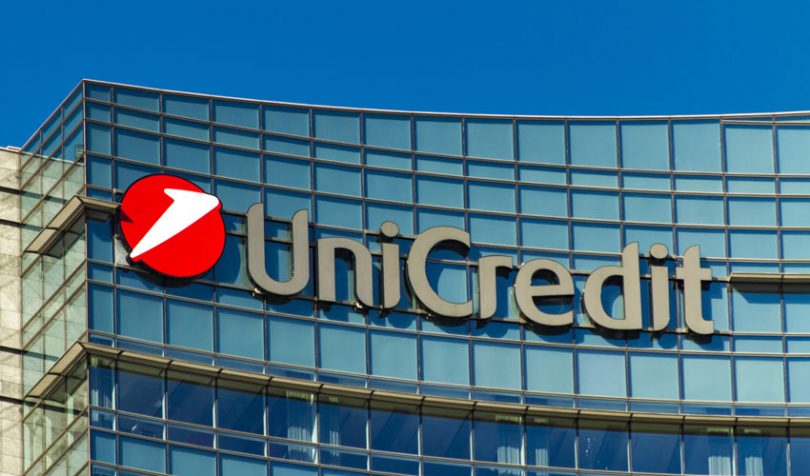Yesterday UniCredit announced the first Italian transaction on the blockchain trade finance platform we.trade. The joint venture company is owned by 13 European banks and operates in 14 countries.
The transaction involved Steelforce in Belgium supplying tinplate to metal packaging producer Gruppo ASA in Italy. KBC Bank financed the seller, and UniCredit supported the buyer. Once the buyer confirms receipt of the goods, the payment will be triggered automatically using a smart contract.
we.trade, which initially targets SMEs, provides two products. Firstly a Bank Payment Undertaking (BPU) where the buyer’s bank gives an irrevocable commitment to pay the invoice at maturity. And BPU financing involves the seller’s bank providing finance by discounting the amount owed in the BPU.
The aim is to provide a more efficient and cost-effective way to trade.
“We believe that we.trade can contribute to redefine business relationships among SMEs, removing obstacles that typically make international transactions costly and complex whilst delivering concrete benefits for our clients,” said Luca Corsini, Head of Global Transaction Banking at UniCredit.
At the Hyperledger Global Forum in December last year, Ledger Insights spoke to two alternate directors of we.trade, Anne-Claire Gorge from Societe Generale and Chantal Van Haute from KBC Bank.
While the banks are focused on financing, they had some unexpected feedback from the SMEs.
“Clients see real value in sharing just the status of a trade transaction. Just seeing where they stand,” said Gorge. “Were the goods shipped? Did you approve the invoice? Did you receive the goods? Did you validate the contents of the parcel? And this brings real value to them. More than expected.”
What’s the status of we.trade?
we.trade went into production in July 2018. However, initially it was a soft launch as with most blockchain projects. From we.trade’s perspective (in December) the solution was at the minimum viable product (MVP) stage.
There’s still a desire to monitor client transactions, to get feedback about what they like and what’s missing.
Currently, customers have to re-key too much data. Plus they believe the project is still at the stage where clients need some training or support to onboard. Where they want to get to is a plug-and-play solution. And the target is for a full commercial launch this Spring.
The we.trade banks are: Deutsche Bank, CaixaBank, Erste Group, Eurobank, HSBC, KBC, Natixis, Nordea, Rabobank, Santander, Société Générale, UBS, and UniCredit.
Useful links:
we.trade: Trade finance blockchain race is about to start
Bank-owned we.trade launches blockchain trade finance platform
Trade finance blockchains consolidate into we.trade
Trade finance blockchain consortia: how they differ
The cost of enterprise blockchain membership
Hong Kong launches trade finance blockchain, partners with we.trade






